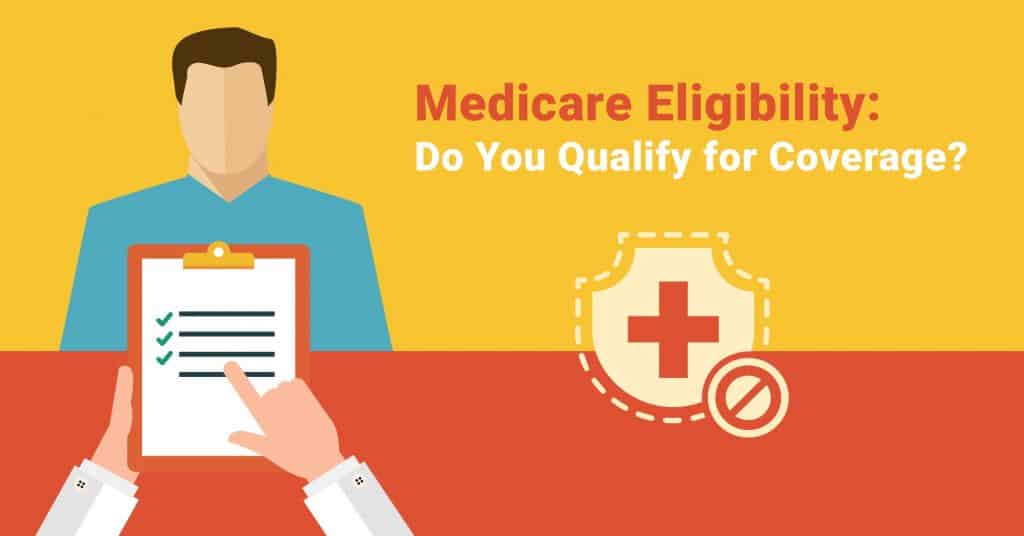What does Medicare part b pay for, If you are looking to sign up for Medicare this year, it is important to know the Medicare Part B eligibility rules.
You are eligible to join Medicare Part B in the months leading up to your 65th birthday. You are also eligible to register formerly than these below exceptional circumstances, such as if you have an incapacity or certain health conditions
In this article, we’ll explore who qualifies for Medicare Part B, how to enroll, and more.
Find Medicare Plans in 3 Easy Steps
We can help get up to $0 monthly premium Medicare plans
Eligibility for Medicare Part B
Medicare Part B is one of the health insurance options that become available to people in the United States once they reach the age of 65. However, there are some special circumstances under which you may be eligible to enroll in Medicare Part B before the age of 65.
Below you will find the eligibility requirements to enroll in Medicare Part B.
if you’re 65 years old:
You automatically qualify for Medicare Part B as soon as you turn 65. Although you will need to wait to use your benefits until your 65th birthday, you can register:
- 3 months before your 65th birthday
- on your 65th birthday
- 3 months after your 65th birthday
If You have a disability
If you have a disability and receive a Social Security or Railroad Retirement Board disability payment, you are eligible to join Medicare Part B, regardless of your age.
According to the Social Security Administration, qualifying disabilities may include:
- Sensory disturbances
- Disorders of the heart, blood vessels, and blood
- Digestive disorders
- Neurological disorders
- Mental illness
If You have ESRD or ALS
If you have been diagnosed with end-stage kidney disease (ESRD) or amyotrophic lateral sclerosis (ALS), you are eligible to enroll in Medicare Part B, even if you are not yet 65 years old.
Read More: what are the 4 phases of Medicare part D coverage
When to enroll in Medicare Part B?
Most people get Medicare Part B when they are 65. If you haven’t registered for Part B, now is the time to decide whether you want to register.
During Medicare’s general enrollment period (January 1 to March 31), you can enroll in Part B and your coverage will begin on July 1.
The decision to enroll in Part B is an important one. It depends on what kind of coverage you have now. It is also important to consider the penalty for late registration in Part B – this lifetime penalty is added to your monthly Part B payment and increases the longer you wait to register.
If you only have Medicare Part A (hospital insurance), adding Part B can help you get the most out of your Medicare coverage. Part B helps cover:
- Services from physicians and other healthcare providers
- Outpatient clinics
- Durable medical equipment (such as wheelchairs, walkers, hospital beds, and other equipment)
- Many preventive services (such as check-ups, shots, or vaccinations, and annual “wellness” visits)
And if you have Part B, you have more options for getting additional coverage, such as prescription medications, vision, hearing, dental, and more.
Medicare Part B premium
Medicare Part B covers physician services, outpatient hospital services, some home health services, durable medical equipment, and some other medical and health services that Medicare Part A does not cover.
Medical insurance premiums, deductions, and co-insurance are adjusted every year by the Social Security Law. For 2021, the monthly Medicare Part B and annual deductible premiums are higher than the 2020 amounts. The standard monthly premium for Medicare Part B enrollments will be $ 148.50 for 2021, an increase of $ 3.90 from $ 144.60 in the year 2020. The annual deductible amount for all Medicare Part B beneficiaries is $ 203 in 2021, an increase of $ 5 over the annual deductible of $ 198 in 2020.
The Part B premiums and the deductible reflect the provisions of the Continuing Appropriations Act 2021 and the Other Extensions Act (HR 8337).
CMS is committed to empowering beneficiaries with the information they need to make informed decisions about Medicare coverage options, including providing new tools to help them make those decisions through the Medicare initiative. In addition to recently released premiums and cost-sharing information for 2021 Medicare Advantage and Part D plans, we are issuing insurance premiums and cost-sharing information for Fee-for-Service Medicare, so that recipients understand their options for receiving Medicare benefits. As previously announced, average 2021 premiums for Medicare Advantage plans are expected to decrease 34.2 percent from 2017 as plan options, benefits, and enrollment continue to increase. The average Medicare Advantage monthly premium will be the lowest in fourteen years (since 2007). The insurance premiums and discounts for the prescription drug plans of Part D of Medicare Advantage and Medicare have already been completed and are not affected by this announcement.
Read More: Medicare Surprises: Three Medicare Surprises No One Told You
Medicare Part B deductible and coinsurance amounts
Part B cost:
The monthly Part B installments may vary from year to year. The standard premium in 2021 is $ 148.50 a month, but a person may have to pay more based on their regular income.
Medicare will notify anyone every year how to change their Medicare Part B insurance premium for the following year.
If a person receives a benefit check, the Social Security Administration or Railroad Retirement Board will automatically deduct that amount, so it’s not necessary to remember to pay Medicare every month.
For deductible and coinsurance
Paying a Part B monthly premium does not mean that medical services are free. A person will also need to pay deductibles and co-insurances for certain services.
Under conventional Medicare, the person’s Part B deductible is $ 203 per year. After this deductible is met, a person will typically pay 20% of the Medicare-approved amount for most physician services, treatments, and durable medical equipment.
Some people may choose to get their insurance coverage under Medicare Advantage or Medicare Part C.
The Medicare Advantage feature, where a person will need to choose a private insurance company to administer their plan, is an alternative to traditional Medicare.
When someone chooses Medicare Advantage, they will still pay a monthly Part B premium, but their out-of-pocket costs may vary depending on their chosen plan. In addition to the Part B premium, the Medicare Advantage premium may also be applied.
Find Medicare Plans in 3 Easy Steps
We can help get up to $0 monthly premium Medicare plans
Delaying Medicare Part B enrollment
In certain cases, you can delay Medicare Part B coverage without incurring a penalty.
Yes, in certain cases, you can delay your Medicare Part B enrollment without paying higher premiums (also known as a late registration fine). If you did not enroll in Medicare Part B when you were first eligible because you or your spouse were employed and had group coverage through an employer or union, you can choose to enroll in Medicare Part B during the Special Enrollment Period (SEP) without paying the late registration penalty.
What is covered under Medicare Part B?
Together with Part A, Part B forms what is called Original Medicare. It is estimated that at the end of 2016, 67 percent of people using Medicare were enrolled in the original Medicare program.
Part B covers a variety of medically necessary outpatient services. Medically necessary service is determined if it is necessary to effectively diagnose or treat a health condition.
Some examples of services covered in Part B are:
- Emergency transport by ambulance
- Chemotherapy
- Durable medical equipment such as wheelchairs, walkers, and oxygen equipment
- Take care of the emergency room
- Dialysis
- Lab tests, such as blood tests and urine tests
- Therapy with practice
- Another test, such as imaging tests and echocardiography
- Outpatient hospital and mental health care
- Physical therapy
- transplants
Part B also covers some preventive services as well. Examples include:
- Bone density measurements
- Cancer screenings such as those for breast, colorectal, and prostate cancer
- Examinations for cardiovascular disease
- Diabetes screening
- Screening tests for hepatitis B, hepatitis C, and HIV
- STI screening
- Vaccinations against influenza, hepatitis B, and pneumococcal disease
What services does Medicare Part B not cover?
There are some services that Part B does not cover. If you need these services, you will need to pay for them out of pocket. Some examples of this include:
- Routine physical exams
- Most of the prescribed medications
- Dental care, including dentures
- Most eye care, including eyeglasses or contact lenses
- Hearing aids
- Long-term care
- Plastic surgery
- Alternative health services such as acupuncture and massage
If you want to cover prescription drugs, you can purchase a Medicare Part D plan. Part D plans are offered by private insurance companies and include the most prescribed medications.
Additionally, Medicare Part C (Medicare Advantage) plans include all of the services covered by the original Medicare program plus some additional services like dentistry, vision, and even fitness programs. If you know that you will need these services frequently, consider a Part C plan.
Does Medicare Part B cover 100 percent?
Medicare Part B is medical insurance. Part B benefits cover some out-of-hospital medical expenses such as doctor’s office visits, blood tests, x-rays, diabetes checks and supplies, and outpatient care in the hospital. You pay a monthly premium for this portion of the original Medicare program. Fees can be higher for those with higher incomes. A different government program, Medicaid, can help cover Medicare Part B premiums for low-income recipients.
Medicare Part B recipients are usually responsible for a portion of their healthcare costs. You will have to pay a deductible amount each year before your Medicare Part B benefits begin, and then you will generally pay 20% of the bill when you go to a Medicare Associate. Medicare pays the full cost for the many lab tests and services your doctor orders
Find Medicare Plans in 3 Easy Steps
We can help get up to $0 monthly premium Medicare plans
Who qualifies for free Medicare B?
Anyone who qualifies for free Medicare Part A is eligible for Medicare Part B by enrollment and paying a monthly premium. If you do not qualify for free Medicare Part A, you can qualify for Medicare Part B by meeting the following requirements:
- You must be 65 years of age or older.
- You must be a citizen or permanent resident of the United States for at least five continuous years.
You may also qualify for automatic enrollment into Medicare Part B through a disability. If you are under 65 and receive disability benefits from Social Security or Railroad Retirement Board (RRB), you will be automatically enrolled in Medicare Part A and Part B after 24 months of disability benefits. You may also be eligible to enroll in Medicare Part B before 65 if you have an end-stage renal disease (ESRD) or amyotrophic lateral sclerosis (also known as ALS or Lou Gehrig’s disease).
Read More:






